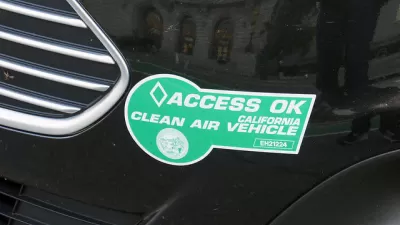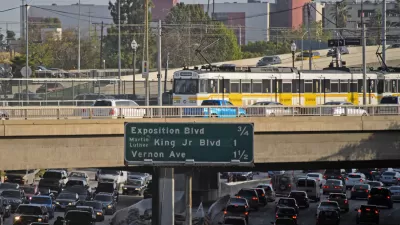California industries are buying offsets in lieu of purchasing carbon allowances or reducing carbon emissions, and most of the offsets are spent out-of-state, assisting the recipients economically as well as reducing greenhouse gas emissions.
In this radio report,
- "Air quality standards require methane engines in the Central Valley to run extremely cleanly. That can require expensive technology, such as one piece of equipment that costs as much as a quarter of a million dollars.
- "The price of electricity that farmers sell back to the grid is not high enough to help farmers pay off the cost of the digesters."
The Pennsylvania farmer is quite happy with his biodigesters, which Bartolone describes in some depth. “Because of the manure that we had, and the need for energy, it was just the perfect fit,” says Dennis Brubaker, the farmer.
While Brubaker is paying a little more than a million dollars for the system on his pig farm, recent state grant information suggests the cost could reach six million (dollars) on a California dairy farm.
In this short video, Bartolone explains that large California industries that "fall under the cap," i.e., must comply with cap-and-trade provisions, "are given a threshold for how much greenhouse gas they can produce for free. Above that threshold," they have three ways to comply:
- Reduce carbon emissions. They can even sell excess carbon allowances.
- Purchase carbon allowances. Funds go to the Greenhouse Gas Reduction Fund and are used to reduce emissions in California.
- Purchase offsets. However, there are a limited amount of offsets.
The offsets make sense from an economical perspective in that they make it easier for California industries to comply with cap-and-trade, even if the environmental and economic benefits are realized elsewhere.
Bartolone's CALmatters' colleague. Laurie Rosenhall, visits the Clean Harbors Environmental Services incineration plant in Eldorado, Arkansas, "which as of now, a CALmatters analysis discovered, has generated almost one-third of the offset credits approved by the California Air Resources Board (CARB) under the state’s cap and trade system," writes Rosenhall.
The facility "destroy(s) chlorofluorocarbons – cooling gases that could otherwise deplete the ozone layer." It's also a super-potent greenhouse gas. However, the Clean Harbor credits were since invalidated due to an investigation launched by CARB that showed improprieties at the plant—but the decision was a controversial one.
There are opponents to the offset program, such as "Citizens’ Climate Lobby, a group that sued the state over offsets, and lost."
“The activities that have been chosen for offsets are virtually all activities that were happening to some degree prior," states volunteer Laurie Williams. "And where it’s impossible to tell what additional increment of that activity you’re getting because of the offset credit. It’s too complex.”
She has a point. Brubaker admits he was going to purchase the digester with or without the cash from the California offset credits.
Like them or not, "(t)he supply of offset credits has doubled since last year, according to the Climate Action Reserve," a registry for offsets, writes Bartolone at the end of her piece.
FULL STORY: Why California Polluters Pay a Pennsylvania Pig Farmer to Curb Emissions

Planetizen Federal Action Tracker
A weekly monitor of how Trump’s orders and actions are impacting planners and planning in America.

Chicago’s Ghost Rails
Just beneath the surface of the modern city lie the remnants of its expansive early 20th-century streetcar system.

San Antonio and Austin are Fusing Into one Massive Megaregion
The region spanning the two central Texas cities is growing fast, posing challenges for local infrastructure and water supplies.

Since Zion's Shuttles Went Electric “The Smog is Gone”
Visitors to Zion National Park can enjoy the canyon via the nation’s first fully electric park shuttle system.

Trump Distributing DOT Safety Funds at 1/10 Rate of Biden
Funds for Safe Streets and other transportation safety and equity programs are being held up by administrative reviews and conflicts with the Trump administration’s priorities.

German Cities Subsidize Taxis for Women Amid Wave of Violence
Free or low-cost taxi rides can help women navigate cities more safely, but critics say the programs don't address the root causes of violence against women.
Urban Design for Planners 1: Software Tools
This six-course series explores essential urban design concepts using open source software and equips planners with the tools they need to participate fully in the urban design process.
Planning for Universal Design
Learn the tools for implementing Universal Design in planning regulations.
planning NEXT
Appalachian Highlands Housing Partners
Mpact (founded as Rail~Volution)
City of Camden Redevelopment Agency
City of Astoria
City of Portland
City of Laramie




























